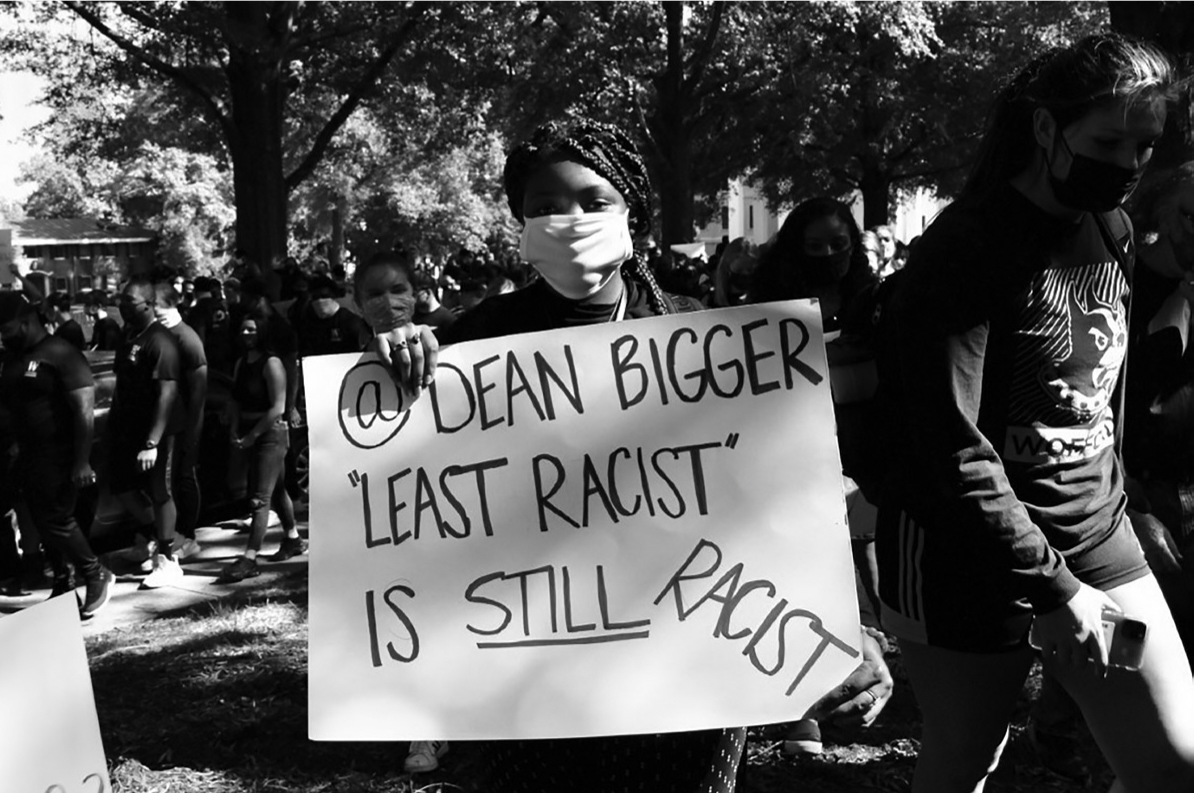WARC calls for name changes of certain residence halls
After forming this past summer, Wofford’s Anti-Racism Coalition made a list of grievances and demands for Wofford College asking that they address and work to correct the institutional, structural and personal racism and prejudice that BIPOC students face on campus.
One of the demands of the coalition is to officially change the names of the Wightman, Shipp and Carlisle Residence Halls—all of which are named after men who purchased and owned slaves. William M. Wightman, Albert M. Shipp and James Carlisle, the namesakes of these buildings, also all held prominent positions at The Southern Christian Advocate, a journal created in 1837 heavily committed to the institution of slavery.
As it is clear that keeping the names of these buildings also keeps a part of the past present on campus that no one is proud of, changing them may bring complications in what else is kept on campus.
“I do not think that students, faculty and staff should have to enter buildings named for individuals who did not value them as equal human beings whether due to race or gender” said Professor Natalie S. Grinnell, department of English.
As these buildings are meant for students to live in while they prosper and thrive on campus, they are named after people who wouldn’t see students of a specific race as worthy of doing so.
However, if Wofford were to officially change the names of these three buildings, how would this relate to action being taken in other instances on campus?
“I think it’s a somewhat complicated issue,”said Professor Timothy A. Bersak, department of Economics. “If the college changes those names, and those names only, how can they justify keeping other names associated with systemic racism?”
As Benjamin Wofford was also associated with slavery, would this lead to the name of the college eventually being changed and the overall loss of the brand of “Wofford College”?
However, since students living in these dorms are the ones being directly affected, Bersak also stated that he would be in favor of more weight being placed on student concerns especially as the changing of the official names could be “a small concrete action they can take that would signal that they hear the concerns and are working to make changes.”
Within the naming of buildings in the first place, though, Grinnell proposed the idea of not using names at all as she believes that it would be “both innovative and inspiring to enter buildings named for aspirations such as Justice, Equity or Creativity.”
As virtues such as these are valued by Wofford College and many students as well, this option could create unity among the Wofford community.
Written by Lauren Strange




























